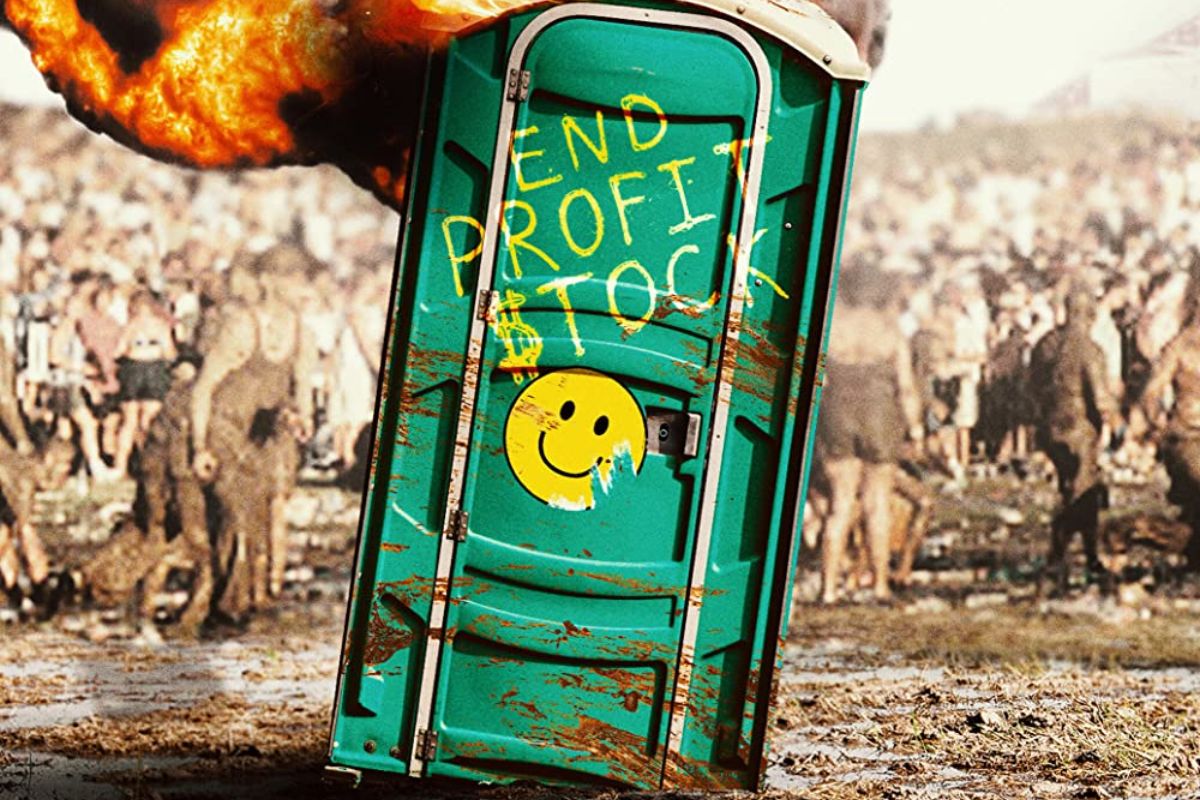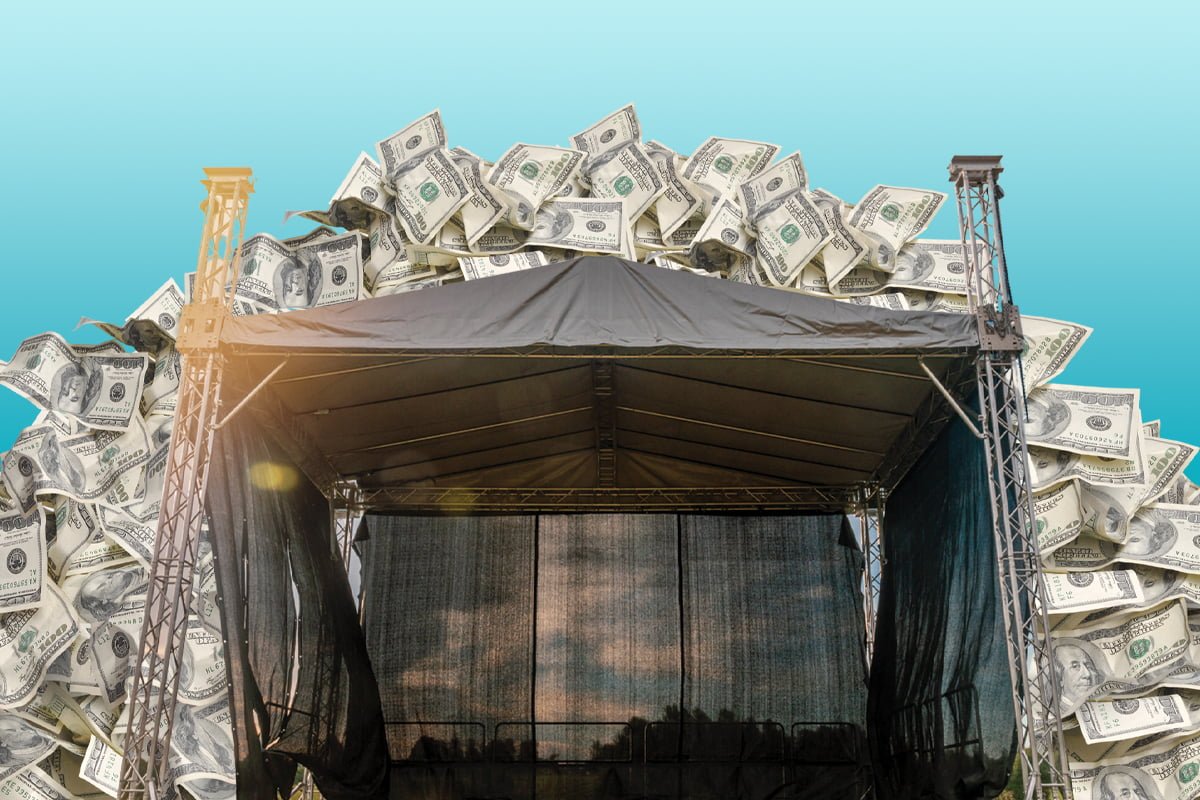Music fans may have hoped that festival season this summer would be a distraction from the horrors and stresses of capitalist society. Instead, they have been greeted by a carnival of chaos, as the anarchic logic of the system leaves no stone unturned.
At Slam Dunk, a festival which has been running for 17 years, there were major issues with traffic, queues, and overcrowding, as well as lacklustre accessibility for disabled fans. Consequently, the festival organisers were forced to issue an apology.
Download Festival, the largest rock and metal festival in the UK, which has been running for 20 years, was blighted by similar issues. Revellers were stuck in traffic jams for over 12 hours to enter the event, only to face further long queues once inside.
Disabled access at download festival, let’s talk about it bc SO many of you are bitching about “it’s standard festival stuff, quit whining” with no idea the access side of things
🧵 1/?— Parice Rose (@PariceRose) June 12, 2023
Due to the festival’s location next to East Midlands Airport, meanwhile, many members of the public missed their flights because of the surrounding congestion.
Polycrisis
These problems are not unique to this year, but are part and parcel of the festival experience under the profit-driven capitalist system. Corner cutting and price gouging by big businesses in the music industry are the rule, not the exception.
Added to this dire baseline, rising energy and transport costs, higher interest rates, and a post-pandemic shortage of skilled workers have only served to throw further fuel on the bonfire.
In the face of this polycrisis, the bosses are looking to boost their profits as much as possible.
As a result, ticket prices are soaring; music venues are demanding a greater slice of band merchandise sales; and festival facilities such as toilets and water-points are being cut back, in favour of money-making retail space.
Cultural stagnation
It isn’t just the organisational aspects of festivals that are impacted by this, but the music itself. The capitalists only invest in such events to turn a profit. The actual development of art and culture are not given a second thought.
This profit motive means that music bosses are risk averse. Record labels sign and push derivative artists who they believe will be cash-cows. And promoters and festivals book safe line-ups to try and pull in the maximum number of punters.
Smaller and newer artists are therefore squeezed out of the industry, while the same thin gruel is served up to fans again and again. The same can be said for upstart festivals, which are dropping like flies, including Beyond, Dominion, and Detonate.
The deepening of the capitalist crisis, particularly in Britain, will only intensify this process. The infamous Woodstock ‘99 festival trainwreck stands as a testament to where the endless pursuit of profit could lead.
Socialism

This chaos and ruthless profiteering can only be stopped by overturning the foundations on which it stands: the capitalist system.
For the music industry, this means placing the major monopolies that dominate the sector – like LiveNation, Academy Music Group, Spotify, and others – in the hands of the workers who keep festivals, gigs, and streaming services running in the first place.
By planning the economy, democratically and rationally, the working day could be drastically reduced, and investment could be carried out for need rather than for profit.
In this way, crowd control, food and water, and accessible facilities could be properly provided, in order to ensure that safe, enjoyable music events are available to all, regardless of wealth or disability.
Those with a passion for music – either creating it or listening to it – would have far more free time to pursue their interests. And studios, venues, and instruments would all be brought under public ownership and control, in order that everyone and anyone has the opportunity to develop and nurture their inner talents.
This, in turn, would usher in a period of unparalleled artistic development and experimentation across society. It would make festivals the celebration of music and culture that they should be, rather than the cynical cash grabs that they are now.
Only through socialism can we prevent capitalism from driving culture – and human society in general – into an abyss.
A day in the life of an events rigger
“It’s like we’re back in the days where men wake up at the crack of dawn to stand around the dock, waiting for some bloke to point at them and give them a job for the day.”
That’s what one of my co-workers said to me towards the end of another gruelling 13-hour overnight shift in central London.
We had just spent the last five hours loading about 70 steel deck stages – often weighing around 70-80 kg each – up three flights of stairs and through the tight corridors of an exclusive and expensive club.
For our efforts, our client had bemoaned how slow our pace was, despite giving us a lecture hours before on how we need to be extremely careful not to hit any of the walls. In fact, we’d have finished several hours earlier had he taken into account that the elevators present in the building could not accommodate the large structures.
But often to these clients, and to our own bosses, our limitations and safety are not a concern. It is made clear that the moment our boots are on and the clock has started, we’ve lost our status as real human beings. No wonder our catchphrase in this industry is: “We’re just bodies to these people.”
This was my first shift of the night…or was it the day? Time loses all meaning when you’re working these ridiculous hours. I’ll never forget when I was promoted to crew chief; my boss had made a solemn promise that he’d “never work you boys more than 24 hours at a time”.
But that night, only a week later, I was scheduled for 27 hours, with five hours to travel home and sleep before my next set of shifts.
I am an independent contractor, with the right to accept or reject jobs ‘at my leisure’. But facing the crushing weight of the cost-of-living crisis, and paying off my student loans, I have no real choice but to accept whatever may come my way.
There is no security in this job, as contracts will only be offered one or two days before they are due. It is impossible to plan ahead, set a schedule, or even track what hours you’ve already done, due to an archaic system of text messages used to offer and accept work. Even if a job is accepted, there is no guarantee you’ll get it until the day itself.
New hires are also instructed to accept their paychecks through employment agencies that offer to file taxes on their behalf, and secure income. The first advice we give to any of the new hires, however, is to abandon them, and to file as an independent contractor. Why?
Simple. These agencies will take large amounts of your income away in the form of ‘administrative fees’ (up to 400 quid in one of my paychecks!), and many of these fees go right back into the pockets of our bosses due to promotional deals.
Without us, these stages, truss, and events could never go up. We are paid the least, and made to take the brunt of the physical labour.
Resentment is boiling over in this industry, however. The most exploited elements of the events industry are seeing the gains won by militant union workers in other jobs. And we’re all starting to wonder if we couldn’t manage something similar ourselves.
Like workers all over the country – and the world – we must be prepared to wrestle our livelihoods and our dignity back out of the hands of the bosses.
They’ve never done a day of work like we have, after all. It’s our skills that keep things running around here.
There is nothing special about these conditions. Those who work in the gig economy more widely will likely see their own situation reflected here.
This unity is what we must see as our biggest strength. If other workers can do it, then so can we.
The time’s soon coming when we’ll take a stand, and show how vital we are to everything running smoothly. We have nothing but insecure wages and sleepless nights to lose – and all the world to gain.






